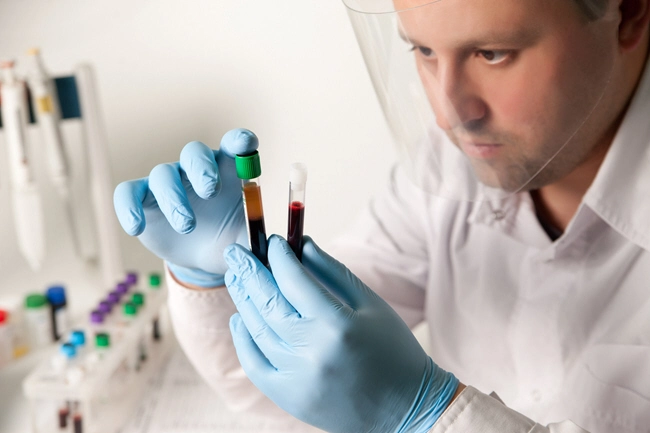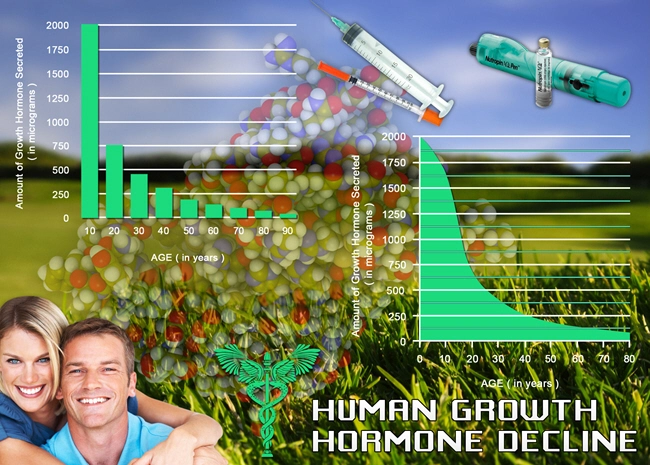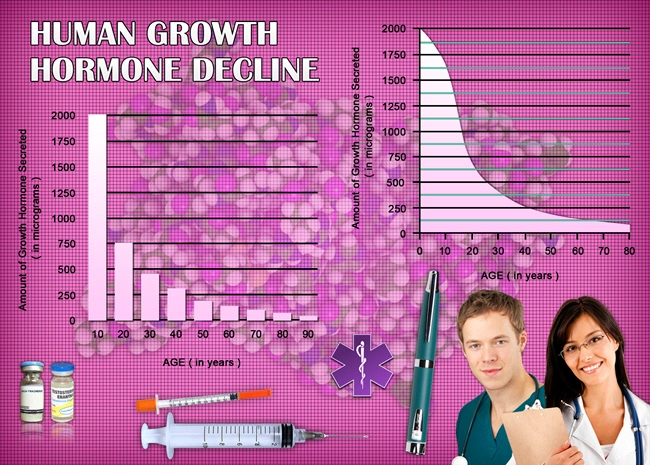
Introduction
Penile size is a significant concern for many American males, often linked to self-esteem and sexual health. While various factors can influence penile size, hormonal imbalances due to endocrine disorders play a crucial role. This article delves into the relationship between hormonal imbalances and penis shrinkage, providing a comprehensive review of the underlying endocrine disorders and their effects on penile size among American males.
Understanding Endocrine Disorders
Endocrine disorders are conditions that disrupt the body's hormonal balance, which can lead to a variety of health issues, including changes in penile size. The endocrine system is responsible for producing and regulating hormones that control many bodily functions, including growth and development. When this system malfunctions, it can lead to hormonal imbalances that affect the penis.
Hormonal Imbalances and Penile Size
Hormonal imbalances, particularly those involving testosterone, can significantly impact penile size. Testosterone is a key hormone in male development, influencing the growth and maintenance of the penis. Low levels of testosterone, often resulting from conditions such as hypogonadism, can lead to reduced penile size. Conversely, high levels of estrogen, which can occur in conditions like gynecomastia, may also contribute to penis shrinkage.
Common Endocrine Disorders Affecting Penile Size
Several endocrine disorders are known to affect penile size in American males. Hypogonadism, characterized by the body's inability to produce sufficient testosterone, is a primary culprit. This condition can be congenital or acquired and often leads to a decrease in penile size due to insufficient hormonal support for growth and maintenance.
Another disorder, hyperthyroidism, can also impact penile size. An overactive thyroid gland can lead to increased metabolism and weight loss, which may result in a reduction in penile size. Additionally, conditions like diabetes, which can affect blood flow and nerve function, may indirectly contribute to penis shrinkage.
The Role of Aging and Hormonal Changes
Aging is a natural process that brings about changes in hormone levels, particularly a decline in testosterone. This age-related hormonal shift can lead to a gradual reduction in penile size among American males. As men age, the prevalence of endocrine disorders such as hypogonadism increases, further exacerbating the issue of penis shrinkage.
Treatment and Management
Addressing hormonal imbalances and their effects on penile size requires a multifaceted approach. Hormone replacement therapy (HRT) is often used to treat conditions like hypogonadism, helping to restore testosterone levels and potentially reverse penis shrinkage. Additionally, lifestyle modifications, such as maintaining a healthy diet and regular exercise, can support overall hormonal health and mitigate the effects of aging on penile size.
For conditions like hyperthyroidism, medications that regulate thyroid function can help stabilize hormone levels and prevent further penile size reduction. In cases where diabetes is a contributing factor, managing blood sugar levels and improving circulation through medication and lifestyle changes can also be beneficial.
Conclusion
Hormonal imbalances due to endocrine disorders play a significant role in penis shrinkage among American males. Understanding the underlying causes and effects of these disorders is crucial for effective management and treatment. By addressing hormonal imbalances through medical intervention and lifestyle adjustments, it is possible to mitigate the impact of these conditions on penile size and improve overall quality of life. As research continues to evolve, new treatments and strategies will further enhance our ability to address this important health concern.
Contact Us Today For A Free Consultation
Dear Patient,
Once you have completing the above contact form, for security purposes and confirmation, please confirm your information by calling us.
Please call now: 1-800-380-5339.
Welcoming You To Our Clinic, Professor Tom Henderson.

- Penile Atrophy: Symptoms, Causes, and Management Strategies for American Males [Last Updated On: February 21st, 2025] [Originally Added On: February 21st, 2025]
- Deciphering the Mystique Surrounding Male Genital Diminution: Reality vs. Folklore [Last Updated On: February 25th, 2025] [Originally Added On: February 25th, 2025]
- Grasping the Enigma of Male Genital Diminishment: Comprehending Causes and Implications [Last Updated On: February 26th, 2025] [Originally Added On: February 26th, 2025]
- Understanding the Process: The Evolution of Male Sexual Organ Size Through the Years [Last Updated On: February 27th, 2025] [Originally Added On: February 27th, 2025]
- Decoding the Enigma: A Scientific Approach to Hormonal Balance, Human Health, and the Phenomenon of Penile Shrinkage [Last Updated On: February 28th, 2025] [Originally Added On: February 28th, 2025]
- Exploring the Interplay: Body Weight, Dietary Habits and Sexual Health [Last Updated On: February 28th, 2025] [Originally Added On: February 28th, 2025]
- Unveiling Andropause: Understanding Male Menopause and Its Effects on Penile Health [Last Updated On: March 1st, 2025] [Originally Added On: March 1st, 2025]
- Demystifying the Enigma: A Candid Talk on Penile Retraction [Last Updated On: March 1st, 2025] [Originally Added On: March 1st, 2025]
- The Enigma of Anxiety: Exploring its Impact on Male Reproductive Health [Last Updated On: March 2nd, 2025] [Originally Added On: March 2nd, 2025]
- Exploring Testosterone: Its Critical Role in Muscle Mass, Fat Distribution, and Bone Health [Last Updated On: March 3rd, 2025] [Originally Added On: March 3rd, 2025]
- Understanding Physical Changes After Prostate Surgery: Insights and Coping [Last Updated On: March 4th, 2025] [Originally Added On: March 4th, 2025]
- Linking Physical Activity to Male Sexual Health and Preventing Penile Shrinkage [Last Updated On: March 5th, 2025] [Originally Added On: March 5th, 2025]
- Understanding Blood Flow's Role in Penile Health and Erection Quality [Last Updated On: March 6th, 2025] [Originally Added On: March 6th, 2025]
- Genetic Predispositions and Lifestyle Choices: Unraveling the Factors Behind Penis Size and Shrinkage [Last Updated On: March 6th, 2025] [Originally Added On: March 6th, 2025]
- Impact of Smoking and Alcohol on Male Sexual Health: Lifestyle Factors Unveiled [Last Updated On: March 7th, 2025] [Originally Added On: March 7th, 2025]
- Debunking Myths and Facts: Understanding the Causes of Penis Shrinkage in Men [Last Updated On: March 8th, 2025] [Originally Added On: March 8th, 2025]
- Understanding Chronic Illness Effects on Genital Health in American Men: Strategies for Wellness [Last Updated On: March 9th, 2025] [Originally Added On: March 9th, 2025]
- Unveiling the Link Between Diabetes and Penile Size: A Metabolic Perspective [Last Updated On: March 12th, 2025] [Originally Added On: March 12th, 2025]
- Environmental Toxins and Penis Shrinkage: Exploring the Impact on American Males [Last Updated On: March 13th, 2025] [Originally Added On: March 13th, 2025]
- Understanding Global Variations in Penile Dimensions: A Comprehensive Overview [Last Updated On: March 15th, 2025] [Originally Added On: March 15th, 2025]
- Obesity's Impact on Genital Health: Understanding Penis Shrinkage in American Males [Last Updated On: March 18th, 2025] [Originally Added On: March 18th, 2025]
- Inflammation and Oxidative Stress: Hidden Causes of Penile Shrinkage in American Males [Last Updated On: March 18th, 2025] [Originally Added On: March 18th, 2025]
- Weight Loss Reverses Penile Length Reduction in American Males: Scientific Insights [Last Updated On: March 18th, 2025] [Originally Added On: March 18th, 2025]
- High Blood Pressure's Impact on Penis Size: Understanding Shrinkage and Prevention [Last Updated On: March 18th, 2025] [Originally Added On: March 18th, 2025]
- Diet and Nutrition: Key to Preventing Penile Shrinkage and Enhancing Health [Last Updated On: March 19th, 2025] [Originally Added On: March 19th, 2025]
- Hormonal Imbalances and Penis Size: Understanding Endocrine Disruptions in American Males [Last Updated On: March 19th, 2025] [Originally Added On: March 19th, 2025]
- Sedentary Lifestyles and Male Genital Health: Understanding Penis Shrinkage [Last Updated On: March 19th, 2025] [Originally Added On: March 19th, 2025]
- Understanding Penile Aging: Normal Shrinkage vs. Medical Concerns in American Men [Last Updated On: March 19th, 2025] [Originally Added On: March 19th, 2025]
- Measuring Penis Size: Tools, Techniques, and Understanding Shrinkage in American Males [Last Updated On: March 21st, 2025] [Originally Added On: March 21st, 2025]
- Exploring Herbs and Supplements to Prevent Penis Shrinkage: A Guide for American Males [Last Updated On: March 21st, 2025] [Originally Added On: March 21st, 2025]
- Prostate Health and Penis Size: Understanding Shrinkage and Prevention Strategies [Last Updated On: March 21st, 2025] [Originally Added On: March 21st, 2025]
- Medications Linked to Penile Shrinkage: Causes and Management Strategies [Last Updated On: March 22nd, 2025] [Originally Added On: March 22nd, 2025]
- Understanding Penile Size: Measurement, Shrinkage, and Health for American Males [Last Updated On: March 22nd, 2025] [Originally Added On: March 22nd, 2025]
- Psychological Strategies to Manage Perceived Penis Shrinkage in American Males [Last Updated On: March 22nd, 2025] [Originally Added On: March 22nd, 2025]
- Metabolic Syndrome Linked to Penis Shrinkage in American Males: Prevention and Treatment [Last Updated On: March 22nd, 2025] [Originally Added On: March 22nd, 2025]
- Penile Atrophy: Causes, Detection, and Management for American Males [Last Updated On: March 23rd, 2025] [Originally Added On: March 23rd, 2025]
- Aging and Penile Health: Understanding Shrinkage and Enhancing Vitality [Last Updated On: March 23rd, 2025] [Originally Added On: March 23rd, 2025]
- Exercise Mitigates Age-Related Penile Shrinkage in American Males: Scientific Insights [Last Updated On: March 24th, 2025] [Originally Added On: March 24th, 2025]
- HRT's Role in Combating Penis Shrinkage: Benefits, Risks, and Lifestyle Impact [Last Updated On: March 24th, 2025] [Originally Added On: March 24th, 2025]
- Anti-Inflammatory Diets: A Promising Approach to Preventing Penile Shrinkage in American Males [Last Updated On: March 24th, 2025] [Originally Added On: March 24th, 2025]
- Environmental Pollution and Its Potential Impact on Male Penis Size: A Comprehensive Review [Last Updated On: March 24th, 2025] [Originally Added On: March 24th, 2025]
- Combatting Penis Shrinkage: Holistic Health Strategies for American Males [Last Updated On: March 24th, 2025] [Originally Added On: March 24th, 2025]
- Understanding and Treating Penis Shrinkage: Causes and Emerging Therapies [Last Updated On: March 24th, 2025] [Originally Added On: March 24th, 2025]
- Penis Shrinkage and ED: Causes, Overlap, and Treatment Options for American Males [Last Updated On: March 25th, 2025] [Originally Added On: March 25th, 2025]
- Chronic Stress and Cortisol: Impacts on Penile Health and Shrinkage in American Males [Last Updated On: March 25th, 2025] [Originally Added On: March 25th, 2025]
- Sleep Disorders and Penis Shrinkage: Impact on Men's Sexual Health [Last Updated On: March 25th, 2025] [Originally Added On: March 25th, 2025]
- Preventing Penis Shrinkage: Aging, Lifestyle, and Health Strategies for American Men [Last Updated On: March 25th, 2025] [Originally Added On: March 25th, 2025]
- Chronic Illnesses and Penis Shrinkage: Impacts and Management for American Males [Last Updated On: March 25th, 2025] [Originally Added On: March 25th, 2025]
- Smoking's Impact on Penis Health: Shrinkage, Cessation Strategies, and Recovery [Last Updated On: March 25th, 2025] [Originally Added On: March 25th, 2025]
- Understanding Penis Shrinkage: Causes, When to Seek Help, and Treatment Options [Last Updated On: March 26th, 2025] [Originally Added On: March 26th, 2025]
- Peyronie's Disease: Understanding Causes, Effects on Penis Size, and Treatment Options [Last Updated On: March 26th, 2025] [Originally Added On: March 26th, 2025]
- Understanding Penile Atrophy: Causes, Diagnosis, and Management Strategies for American Males [Last Updated On: March 26th, 2025] [Originally Added On: March 26th, 2025]
- Sleep Quality's Impact on Penile Health and Sexual Vitality in American Males [Last Updated On: March 26th, 2025] [Originally Added On: March 26th, 2025]
- Cardiovascular Exercise: A Key to Combating Penis Shrinkage in American Males [Last Updated On: March 26th, 2025] [Originally Added On: March 26th, 2025]
- Penis Shrinkage: Causes, Emerging Treatments, and Future Urological Advances [Last Updated On: March 26th, 2025] [Originally Added On: March 26th, 2025]
- Relationship Dynamics and Their Impact on Perceived Penis Size and Shrinkage Anxiety [Last Updated On: March 26th, 2025] [Originally Added On: March 26th, 2025]
- Understanding Penis Shrinkage: Causes, Impacts, and Overcoming Stigma [Last Updated On: March 26th, 2025] [Originally Added On: March 26th, 2025]
- Genetic Variability and Penis Size: Understanding Shrinkage in American Males [Last Updated On: March 26th, 2025] [Originally Added On: March 26th, 2025]
- Androgens' Crucial Role in Penis Health and Preventing Shrinkage [Last Updated On: March 27th, 2025] [Originally Added On: March 27th, 2025]
- Meditation and Stress-Reduction Techniques for Enhancing Penis Health and Combating Shrinkage [Last Updated On: March 27th, 2025] [Originally Added On: March 27th, 2025]
- Understanding Penis Shrinkage: Causes, Effects, and Remedies for American Males [Last Updated On: March 27th, 2025] [Originally Added On: March 27th, 2025]
- Vascular Surgery: A Key Solution for Preventing Penis Shrinkage and Enhancing Penile Health [Last Updated On: March 27th, 2025] [Originally Added On: March 27th, 2025]
- Weight Loss and Penis Size: Understanding Perceptual Changes in American Males [Last Updated On: March 27th, 2025] [Originally Added On: March 27th, 2025]
- Alcohol's Impact on Penis Size: The Importance of Moderation in Male Health [Last Updated On: March 27th, 2025] [Originally Added On: March 27th, 2025]
- Preventing Penile Shrinkage: Enhancing Vascular Health in American Males [Last Updated On: March 27th, 2025] [Originally Added On: March 27th, 2025]
- Boost Testosterone Naturally: Diet, Exercise, and Lifestyle to Prevent Penis Shrinkage [Last Updated On: March 27th, 2025] [Originally Added On: March 27th, 2025]
- Chronic Diseases and Their Impact on Penile Health and Shrinkage [Last Updated On: March 28th, 2025] [Originally Added On: March 28th, 2025]
- Inflammation's Impact on Penis Size: Cellular Mechanisms and Preventive Strategies [Last Updated On: March 28th, 2025] [Originally Added On: March 28th, 2025]
- American Men Share Personal Journeys with Penile Atrophy: Causes, Treatments, and Coping [Last Updated On: March 28th, 2025] [Originally Added On: March 28th, 2025]
- Guide to Accurate Penis Measurement and Addressing Shrinkage Concerns [Last Updated On: March 30th, 2025] [Originally Added On: March 30th, 2025]
- Understanding Penis Shrinkage: Causes, Treatments, and Breaking the Silence [Last Updated On: March 31st, 2025] [Originally Added On: March 31st, 2025]
- Understanding Penis Shrinkage: Causes, Impacts, and Holistic Management Strategies [Last Updated On: April 1st, 2025] [Originally Added On: April 1st, 2025]
- Managing Penile Shrinkage Fears: Psychological Strategies for American Men [Last Updated On: April 1st, 2025] [Originally Added On: April 1st, 2025]
- Superfoods to Combat Penis Shrinkage: Enhancing Vascular Health Through Diet [Last Updated On: April 2nd, 2025] [Originally Added On: April 2nd, 2025]
- Andropause and Penis Shrinkage: Understanding and Managing Male Aging Symptoms [Last Updated On: April 4th, 2025] [Originally Added On: April 4th, 2025]
- Endocrine System's Role in Penile Health and Preventing Shrinkage [Last Updated On: April 6th, 2025] [Originally Added On: April 6th, 2025]
- Supplements for Penis Health: Efficacy, Risks, and Holistic Approaches for American Males [Last Updated On: April 7th, 2025] [Originally Added On: April 7th, 2025]
- Male Genital Health: Understanding Penis Shrinkage and the Importance of Regular Check-Ups [Last Updated On: April 8th, 2025] [Originally Added On: April 8th, 2025]
- Chronic Stress and Penile Shrinkage: Causes, Effects, and Management Strategies [Last Updated On: April 9th, 2025] [Originally Added On: April 9th, 2025]
- Blood Pressure Medications and Penis Shrinkage: Examining the Evidence and Impacts [Last Updated On: April 10th, 2025] [Originally Added On: April 10th, 2025]








